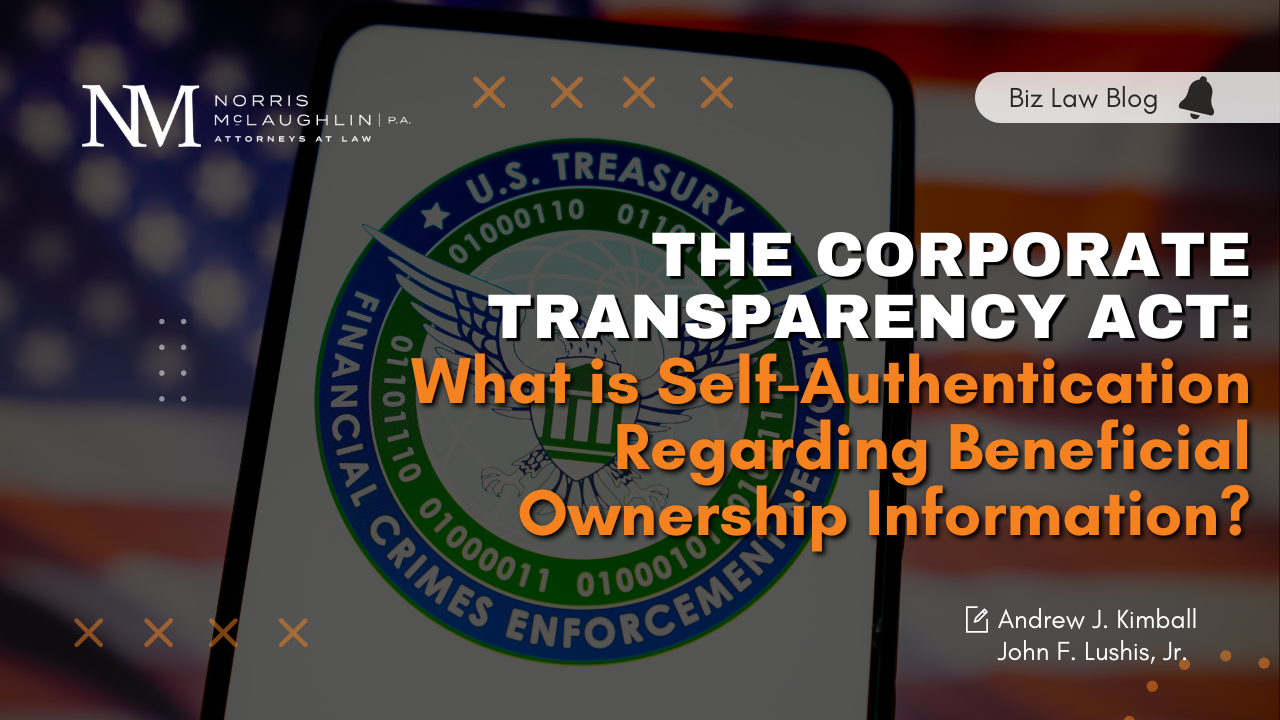‘No Exit’: SEC Sanctions Investment Adviser for Impeding University Investors from Departing a Private Fund

Deccan Value Investors L.P. (“Deccan”) is a Connecticut limited partnership, operating as an investment adviser registered with the U.S. Securities and Exchange Commission (“SEC”) since 2011. Deccan, according to the SEC’s Aug. 3, 2022, Order Instituting Administrative and Cease-and-Desist Proceedings (“Order”), “pursued a long-term, concentrated, low-turnover, research-oriented, fundamental investment strategy, investing all its dozen or so client accounts in a dozen or so companies.” Most of those companies are “large, publicly-traded U.S. issuers, with a smaller percentage being foreign and less liquid.” Deccan’s clients were primarily university endowments, many of whose monies were invested in a commingled fund (the “Commingled Fund”), in which Deccan partners, including Vinit Bodas (“Bodas”), invested. Deccan also advised one separately managed account (“SMA”) for just one of its university clients. Bodas, a 60-year-old Connecticut resident, was Deccan’s founder, majority owner, and Chief Investment Officer. Indeed, Bodas was the only person authorized to approve transactions during the period that is the subject of the Order.
Deccan, as of the Spring of 2019, had more than $3 billion in assets under management, which included assets of some of the “largest higher education endowments in the world.” Two of those university endowment funds notified Deccan in 2019, one (“Uni One”), whose assets were in the Commingled Fund, on April 26, and the other (“Uni Two”), whose assets were in the SMA, in June, that they wished to redeem their respective assets managed by Deccan. Uni One wanted to redeem its entire $146 million investment by 30 June; Uni Two, one of Deccan’s largest and longest-standing clients, wanted to redeem its entire $470 million investment fund by Dec. 27. Deccan created a Liquidating Special Purpose Vehicle (“LSPV”), as permitted under the Deccan Limited Partnership Agreement (though never previously used), to deal with the redemption of some of Uni One’s holdings. The LSPV was notionally intended to facilitate the administration of the redemption and to mitigate any adverse effect on the holdings of other investors in the Commingled Fund. On June 30, 2019, Deccan redeemed 90% of Uni One’s holdings in the Commingled Fund for cash. Deccan then used the 10% remnant (which was equal to about 2% of the Commingled Fund assets) of the Commingled Fund to purchase four less liquid foreign securities and contributed them to the LSPV. Uni Two’s assets were already isolated in the SMA from the assets of other Deccan clients. The aggregate of the requested redemptions totaled some $566 million, which was almost 18.5% of the assets managed by Deccan.
Deccan did not use a LSPV for any other client that redeemed assets in 2019, nor did it actively seek to liquidate the LSPV securities until July 2019, even declining a May 2019 broker’s bid to buy 16% of those securities. In fact, the Deccan trading and operations personnel followed instructions given by Bodas in April to “slow walk” the liquidation of those securities, so those LSPV securities were not fully sold until April 2020. In November 2019, Deccan offered to buy the LSPV securities at a 25% discount, which Uni One declined. Deccan then sold one of those securities in December for 15% more than Deccan had offered to Uni One in November. One of the LSPV securities was stock in an “unlisted Indian company,” which “Bodas loved,” expecting it “to pay off greatly if and when it went public.” Rather than try to sell it, Deccan elected to “cross” that holding by trading it for cash taken from non-redeeming Deccan clients (including Bodas), mostly from a new Deccan client making “its first $100 million” investment with Deccan. The Order notes that “[a]s a result of movements in the market price of the LSPV [s]ecurities, …[Uni] One received less than it would have received had Deccan liquidated its interest in the Commingled Fund or the LSPV [s]ecurities at a reasonable pace and taken advantage of opportunities to sell…that were reasonably available.”
Deccan redeemed $180 million of Uni Two’s $479 million holdings on June 30, 2019. Uni Two requested the rest by Dec. 31, 2019. Uni Two advised Deccan in its redemption notice that it “disfavored emerging market private investments,” which it saw as a focus of Deccan’s investment strategy. By Dec. 27, 2019, Uni Two and Deccan had entered an agreement to extend their advisory relationship through January 2020 to allow Deccan more time “to dispose of certain illiquid holdings” … in the SMA. Some 6% ($17.4 million) of the SMA was the same unlisted Indian company that impeded the liquidation of the LSPV. Deccan received two bids (for 875 Rupees and 880 Rupees) before Dec. 17, 2019, for most of Uni Two’s holdings of the Indian company stock. By Dec. 31, a third-party valuation agent marked the stock price as 840 Rupees. Deccan did not respond to either of the bids; instead Bodas directed Deccan personnel to offer Uni Two 840 Rupees as a “side pocket” investment as part of the same “crossing” transaction used to liquidate that company’s stock from the LSPV. When Uni Two realized what had happened, it objected. Deccan then “agreed to unwind … [Uni] Two’s participation in the Indian investment … and agreed to waive all advisory fees it would have charged… after Dec. 31, 2019.”
The SEC charged Deccan and Bodas with breaching their investment adviser fiduciary duties as follows: i) selling illiquid securities in Uni One’s account unreasonably slowly; ii) not reasonably seeking to liquidate the Indian company’s stock for either Uni One or Uni Two; iii) making materially misleading statements and omissions to Uni Two in advising it to sell the Indian company stock to non-redeeming Deccan clients, including Bodas; and iv) failing to disclose to Uni Two, when getting Uni Two to agree to an extension of its advisory relationship, that Deccan needed more time to redeem the illiquid Indian company holding. The Commission also charged Deccan with a) violating recordkeeping requirements under the Investment Advisers Act of 1940, as amended (the “40 Act”), including having reasonable policies and procedures covering investor redemptions (such as when a LSPV would be appropriate and how to balance conflicts of interest between redeeming and non-redeeming clients); and b) with failing to preserve internal communications about Deccan’s business. The Commission also charged Bodas with causing Deccan’s violations and contributing to them.
As a result, the SEC alleged that Deccan violated the 40 Act: Sections 206(2); 206(4) and Rule 206(4)-8 thereunder; Section 206(4) and Rule 206(4)-7; and Section 204(a) and Rule 204-2(a)(7) thereunder; and that Bodas caused each of those violations. Both Deccan and Bodas consented to undertakings incorporated as part of the Order, specifically: retaining a compliance consultant at Deccan’s expense, where that consultant must within 90 days review Deccan’s books and records policies and procedures, including a review and assessment of training of Deccan personnel, Deccan’s electronic communications preservation requirements and related new technological solutions; and review Deccan’s policies and procedures and related supervision of investor redemptions, including conflicts of interest between redeeming and non-redeeming clients and Deccan’s conflicts in relation to redemptions, the adequacy of disclosures to clients concerning redemptions, and the use of a limited partner review panel with respect to the Commingled Fund. Within 45 days after completion of that review, the consultant must submit a “detailed written report” to Deccan and to the Commission of the consultant’s findings and recommendations for corrective action, as well as Deccan’s plan for implementing those corrections. In addition, Deccan is required to send a copy of the Order to all current and prior clients within 30 days after the entry of the Order. Deccan must also preserve for at least six years records of compliance with the undertaking set out in the Order.
The SEC then imposed the following sanctions: both Deccan and Bodas must cease-and-desist from further violations of the cited 40 Act provisions; Deccan is censured; Deccan shall pay a civil penalty of $1,139,501; Bodas must pay a civil penalty of $500,000; and both respondents must comply with the undertakings set out in the Order.
The university endowment clients of Deccan have certainly had an “education,” including learning that Sartre’s existentialist drama can sometimes arise amid investment management, and that as a result there may be “No Exit” even when one is requested. Deccan may be a Connecticut entity, but for Uni One especially, 2019 must have made it think that (with apologies to “The Eagles”) it was in “Hotel California” – i.e. “you can check out any time you want, but you can never leave.”
If you have any questions concerning this post or any related matter, please feel free to contact me at pdhutcheon@norris-law.com.




